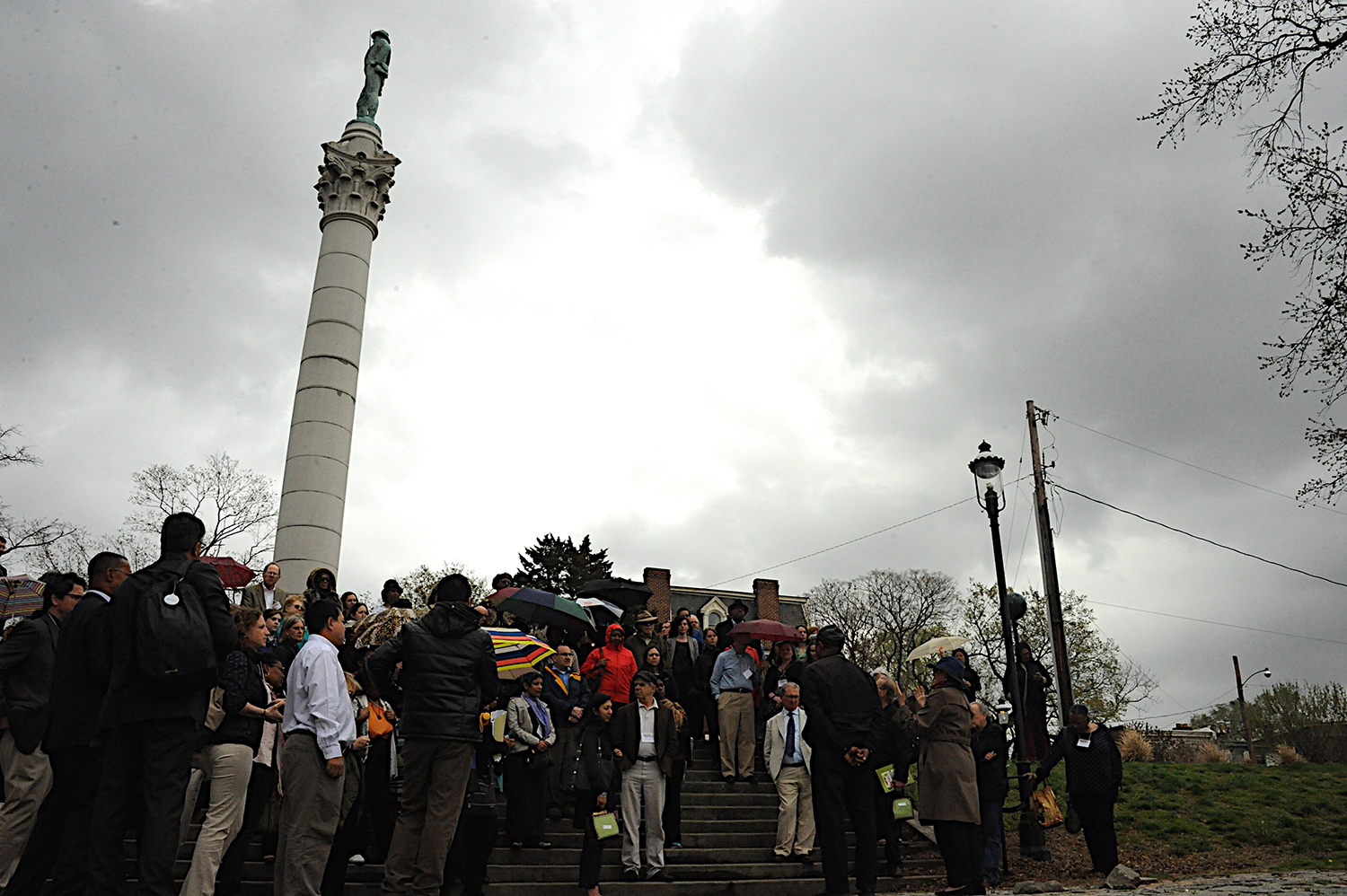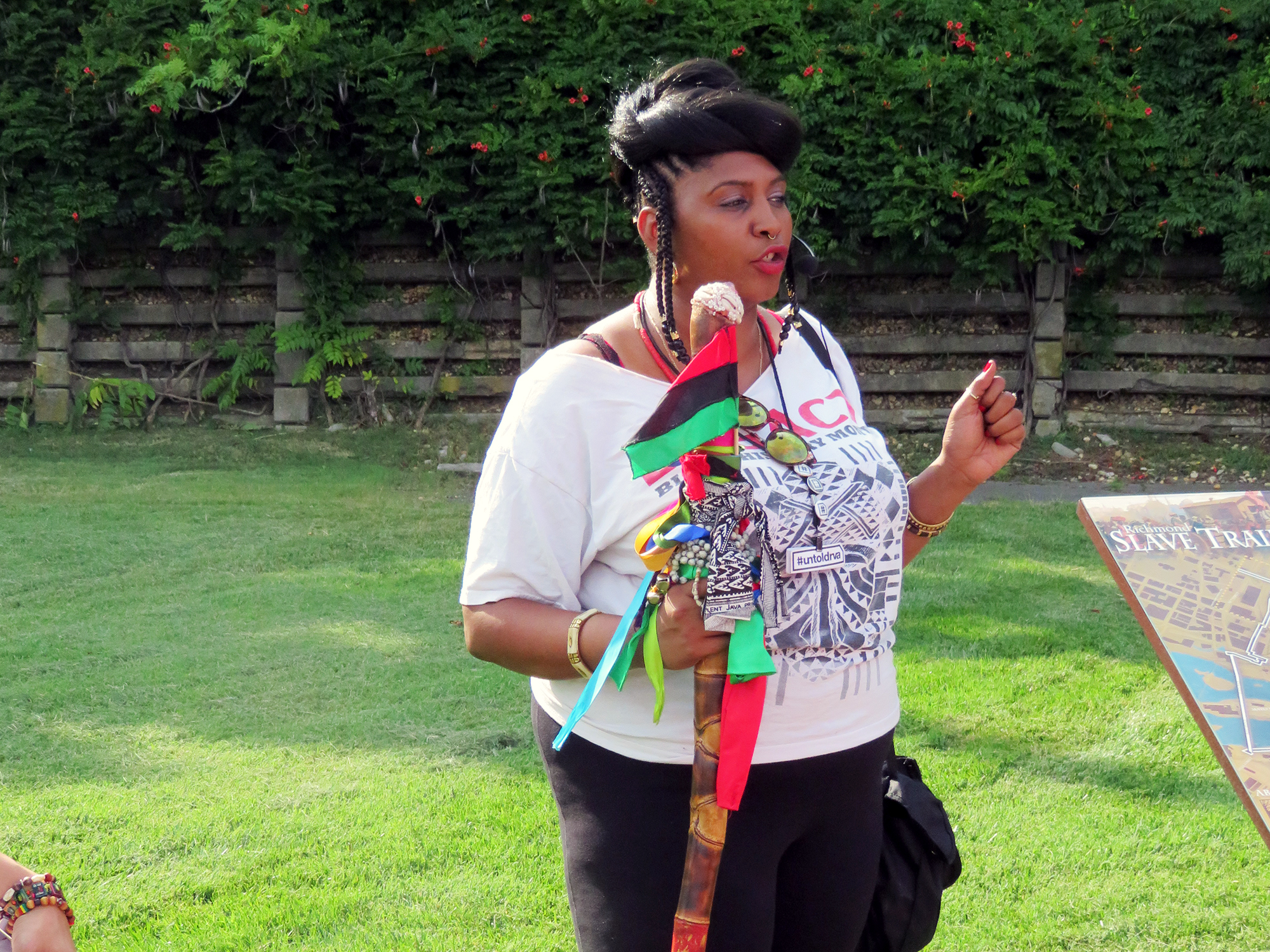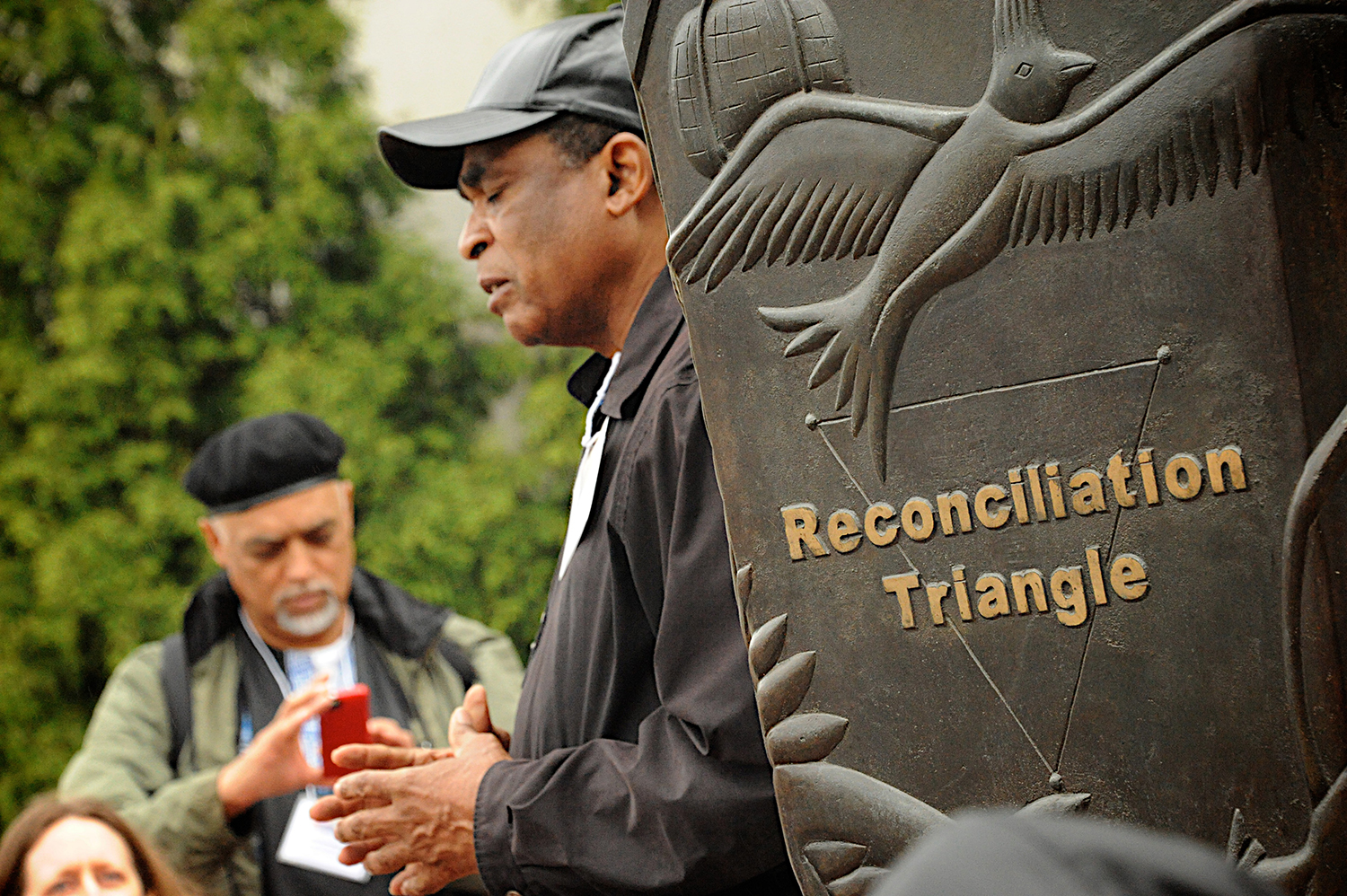Sharing Sacred Stories
Stemming from the 1993 Unity Walk, Hope in the Cities has developed a conceptual practice of “walking through history”. This methodology creates sincere, intentional, and inclusive storytelling about individual and collective histories that are shared publicly. This ritual provides space for public, honest and critical consciousness to take shape between a number of divided persons and/or communities; self-reflection, personal responsibility and truth sharing to evolve between disconnected communities; and individual and collective ownership of shared and equitable histories to plant new seeds into being for the present and future.
Narrow constructions of history and memory preservation can act as "containers for grievances”. Through the development of what Hope in the Cities calls Sacred Stories, we recognize that each person belongs to a number of intersecting groups (race, ethnicity, gender, sex, class, geography, language, education, etc). These groups have memories that are important, often specific to them which shape their identities. This model allows space for each person to share their Sacred Stories while also opening their awareness to learn about the historical perspectives of those seen as most different or in opposition to them.
Hope in the Cities offers two models of “walking through history” as experiential learning tools to begin creating inter-racial relationships based on trust, honesty and accountability:
The Richmond Trail of Enslaved Africans - Pioneered in Richmond in 1993, this walk has become a model for communities around the nation and world working through histories of unequal power steeped in pain, trauma, division, neglect and loss. The Trail provides intimate experience of what newly enslaved Africans encountered from the Middle Passage from water to land. The experiential walks are held throughout the year and are available upon request or appointment.
The Historical Timeline - This exercise enables a diverse group of people who are not in frequent contact with one another’s everyday lives to begin to hear, understand and appreciate different histories, perspectives and experiences, and shift into practices of shared narrative-telling.
Richmond and the Reconciliation Triangle
Representatives from Liverpool, U.K., and Benin, West Africa, gathered in Richmond on March 30, 2007, for the unveiling of a Reconciliation Statue at the city’s former lead market for enslavement. More than 5,000 people attended the unveiling, the result of nearly 10 years of work to create a Reconciliation Triangle between Richmond, Liverpool, and Benin. Governor Tim Kaine and Mayor Douglas Wilder were among the speakers at the opening ceremony. The 14-member Liverpool delegation included Lord Mayor’s official representative. The U.S. Ambassadors of Benin and other West African countries attended the event, sponsored by Richmond’s Slave Trail Commission.
Identical statues created by Liverpool artist Stephen Broadbent stand in each country marking three critical ports fueling the exploitative trade in enslaved Africans and traumatic fragmentation of African peoples. Liverpool students helped design panels for the base of the sculpture and traveled to Benin for research. A city-wide contest also engaged Richmond students to write about their concepts of how to facilitate reconciliation amongst Virginians.The statues symbolize a commitment to forging new relationships between these geographies that acknowledge harmful historical practices, reconcile with the structural legacies of racist inequality, and build fuller narratives of truth-telling and inclusive storytelling of those who are marginalized.
Following the Hope in the Cities’ Unity Walk conference, the Richmond City Council in 1996 established the Slave Trail Commission to develop the history trail as an ongoing educational resource. Richmond Hill worked as a partner with HIC to achieve the statue in Richmond. Work has continued to develop links between schools, neighborhood communities and faith centers, as well as to promote inter-relational healing, historical honesty, cultural heritage and economic development.
In 1999, President Mathieu Kerekou of the Republic of Benin convened an international gathering during which he apologized for Benin’s part in selling fellow Africans to traders. Also in 1999, the Liverpool City Council apologized for that city’s prominent role in the trade.
In 2007, Virginia’s General Assembly voted unanimously and issued a resolution of “profound regret” due its citizens for the involuntary servitude of Africans, prompting a “call for reconciliation” among all Virginians.




















